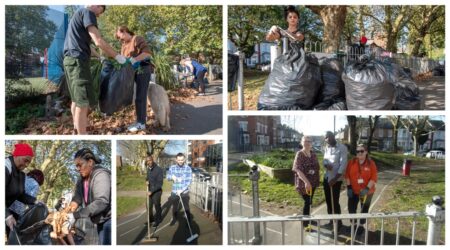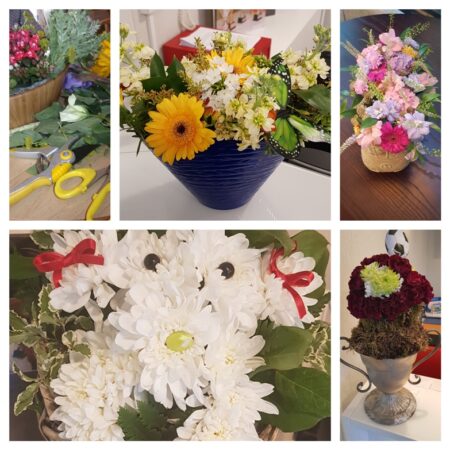Home News & Views Enriching lives through community engagement
Enriching lives through community engagement

Sue Ann Balcombe, General Manager, Priscilla Wakefield House
Care homes should not be isolated buildings where care is delivered or ‘done’ to people; former care minister Paul Burstow (2014) describes these as ‘islands of misery’ and not ‘real’ homes. Instead, they should be actively engaged with the wider community (Alzheimer’s Society, 2013); enabling residents to go out into the community and for the wider community to come in. In terms of community access, it is important that people living in care homes have the same opportunities as the wider population; to use the health services that they need and also to develop and maintain relationships (Alzheimer’s Society, 2013). In their ‘Futures’ report, the ILC-UK suggest that care homes should promote themselves locally, to raise their profile and awareness of the services that they can offer.
At Priscilla Wakefield House Nursing Home, we are proud to be active members of the Borough of Haringey, constantly seeking opportunities for residents and staff to go out and meet with the community, to socialise, to compete, to share and learn. Our aim is to enrich the lives of those living in the home, but also to raise awareness of what we can offer and to continuously develop and improve by learning from others. Here is a flavour of some of the things we have been doing.
‘Going-out’
Collaborating with the CCG, other care homes and Haringey Dementia Action Alliance has created many opportunities to develop and be engaged in meaningful activities within the borough. For example, we have created the Haringey Care Homes Quiz Bee – a monthly event hosted at a different care home which all members make the effort to attend with some residents; and a dementia friendly table tennis tournament, hosted by a care home who have a dementia friendly table tennis table. We also had the opportunity for residents to be involved in the Alexandra Palace Intergenerational Project, at the birthplace of BBC television, to celebrate memories of television past. The end product was a film created by pupils from a local school, facilitated by a film maker, featuring our residents and the pupils.
As the home is part of a culturally diverse community, we are keen to seek out opportunities for all our residents to stay connected. For example, some of the residents are Irish, and expressed a wish to socialize within the Irish Community. They are now attending a luncheon club and monthly tea dance at The Irish Centre in Tottenham. Some other residents are also regular attendees at a tea dance at another daycentre where they enjoy live music, refreshments and the opportunity to socialize with others.
 We are also keen to contribute to the community and last year we started an initiative to improve the green space opposite the home, working in partnership with the local Resident’s Association. The local community have been invited to get involved in a clean-up, and together we are committing to doing the clean-up and some planting on a monthly basis. Our aim is to create an appealing and safe space for all to enjoy. Making connections with the Resident’s Association in this way has created additional benefits within the home for residents; one member came and tuned our piano for free and then started to come in and play it voluntarily for the residents to enjoy; additionally, other members come and visit residents who don’t have many family members to support them. This has really meant a lot to those individuals.
We are also keen to contribute to the community and last year we started an initiative to improve the green space opposite the home, working in partnership with the local Resident’s Association. The local community have been invited to get involved in a clean-up, and together we are committing to doing the clean-up and some planting on a monthly basis. Our aim is to create an appealing and safe space for all to enjoy. Making connections with the Resident’s Association in this way has created additional benefits within the home for residents; one member came and tuned our piano for free and then started to come in and play it voluntarily for the residents to enjoy; additionally, other members come and visit residents who don’t have many family members to support them. This has really meant a lot to those individuals.
Coming-in
Encouraging people to visit the home is really important, not only to enable residents to live well through social interaction and occupation, it also brings the community into the home, possibly changing the perspectives of some about what goes on inside a care home. Potentially some of these visitors could be the future social care workforce!
We participate in key events such as the National Care Home Open Day and regularly host fundraising events such as the Macmillan Coffee Morning and Wear a Hat Day to which we invite the local community. A café area has been added to reception – the Dickens Café – which is a great space for residents to socialize and for family and friends to enjoy a café experience with their loved ones without venturing outside. Over the years we have built positive relationships with a number of the local churches, who provide services, entertainment, befriending and fellowship and other volunteering. Some of the residents recently benefitted from a 12-week music for relaxation programme, funded by the one of the churches in conjunction with the OK Foundation. Similarly, we have fostered healthy connections with local schools and colleges. Children come into the home to engage in artwork with residents, to read and play games with them, and also to help with the use of technology. Residents also take trips to visit the schools to participate in intergenerational projects.

Volunteers can also play a key role in helping residents to enjoy life, so we are pleased to welcome volunteers from both the National Citizen Service and the Prince’s Trust.
Last (for now) but not least, we are proud to have so many talented florists at PWH. We receive flowers on a weekly basis from The Flower Bank, an organisation which works with young offenders creating floral displays from flowers that would otherwise be thrown away. Ursula Stone, the founder of the organisation also does workshops with our residents creating floral arrangements. Several of our residents created floral arrangements which were entered in Tottenham Flower and Produce Show last September. One of our residents was delighted to receive second place.
Work is on-going to create new opportunities and we are all looking forward to an enriching 2020!
References
Alzheimer’s Society (2013) Low expectations: Attitudes on choice, care and community for people with dementia in care homes. Alzheimer’s Society: London. https://www.alzheimers.org.uk/sites/default/files/migrate/downloads/alzheimers_society_low_expectations_report.pdf
Paul Burstow quote: https://www.thejournal.ie/help-%20the-aged-1814698-Dec2014/
Mason, M. (2012) Care home sweet home: care home of the future. International Longevity Centre. London.
Comments are closed.

